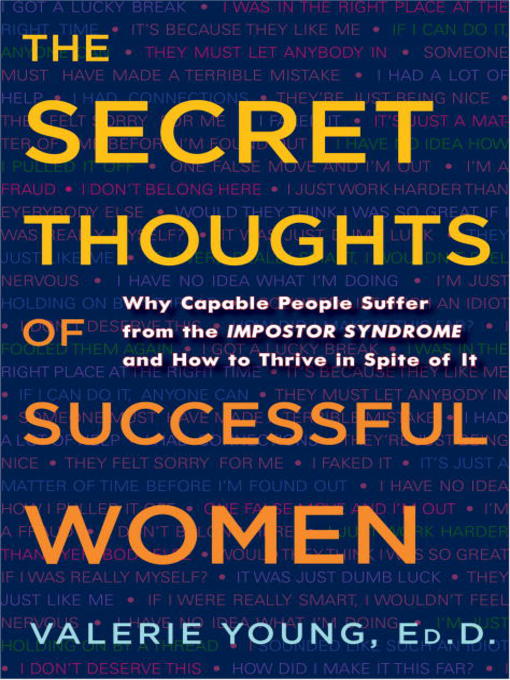
The Secret Thoughts of Successful Women
Why Capable People Suffer from the Impostor Syndrome and How to Thrive in Spite of It
- اطلاعات
- نقد و بررسی
- دیدگاه کاربران
نقد و بررسی

August 15, 2011
Career coach Young explores the “imposter syndrome”—why accomplished women are consumed with insecurity and the fear that they don’t deserve their success and that it’s just a matter of time before they’re found out. She cites Dr. Sheila Widnall, an MIT professor of aeronautics, who observes, “Treat a male student badly and he will think you’re a jerk. Treat a female student badly and she will think you have finally discovered that she doesn’t belong in engineering.” Though this is primarily female behavior, frequent quotes from celebrities of both genders provide a comforting counterpoint. It’s not, as the author wryly points out, all in our heads; men are able to go further by doing significantly less, and “striving while female” is still held to be a crime and female ambition frequently punished. How to triumph? Young presents the reasons why many women feel like imposters and how to get past these reasons; she also describes self-sabotaging behaviors and how to stop them in their tracks. Though there’s been much written on this difficult topic, Young’s extremely perceptive and action-oriented solutions shine; she urges women to focus on their actual, measurable achievements without editorializing (“just the facts, ma’am!”) and to take their cue from men and to fake it till they make it. A can’t-miss primer for businesswomen everywhere.

September 1, 2011
If you're filled with more self-doubt than confidence, avoid risk rather than embrace it, and are less assertive than your r'sum' shows, then you're experiencing the imposter syndrome. Quick to acknowledge the seminal research on this topic (a 1978 paper from two Georgia State University psychologists), author-consultant Young sets out to diagnose this very common trait and prescribe some longer-term diagnoses (other than working with a therapist). It seems, she asserts, that faking it thoughts emanate, in part, from society and its stereotypes. She looks at the different ways the lack of self-confidence is exhibitedfrom perfectionism to becoming a superwomanas well as how to combat those kinds of behaviors. More than half of the book is dedicated to detailing the syndrome, with remedies interwoven; also included at each chapter's end are key lessons and action steps. The cure? A realistic self-examination of work and life successes; a realization that occasional doubts will still linger; and a continuous mantra, such as, Each time you judge yourself, you break your own heart.(Reprinted with permission of Booklist, copyright 2011, American Library Association.)




دیدگاه کاربران